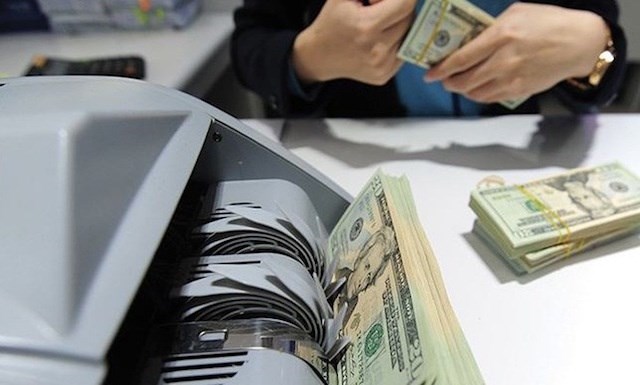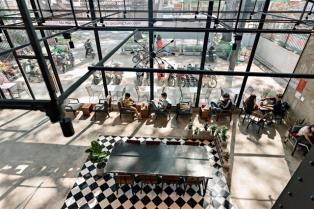Overseas remittances are expected to fall short of the target this year due to the economic crisis caused by the Covid-19 pandemic and shutdowns around the world.

Overseas remittances are expected to fall short of the target this year due to the economic crisis caused by the Covid-19 pandemic and shutdowns around the world.
Nguyen Hoang Minh, deputy director of the State Bank of Viet Nam’s HCM City office, said in the first seven months of the year total remittances to the city, usually the largest recipient in the country, were down 1.2 per cent year-on-year to US$3 billion.
Viet Nam has been among the top 10 recipients in the world for the last three years. Last year its remittances topped US$16.7 billion, of which $5.3 billion came to HCM City.
Money transfer companies said in the first two quarters the strongest drops in remittances to the city were from Viet Nam’s key labour markets such as Japan, Taiwan and South Korea, and other key countries such as the US, UK and Canada.
Some reported up to a 50 per cent decline in the money transferred through their companies.
Remittances from Europe were down the most followed by the US, Canada and Australia, they said.
Dr Can Van Luc of the Bank for Investment and Development of Viet Nam expected remittances to drop by 10-15 per cent this year, but could be even worse if the pandemic continues having bad changes happenings.
Many analysts say the global pandemic has shown few signs of ending, while Viet Nam is facing a second wave, and this could cause remittances to fall by up to 40 per cent in the worst-case scenario.
According to the United Nations Development Programme, 60 per cent of remittances to Viet Nam comes from the US, which accounts for 50 per cent of all overseas Vietnamese. Europe accounts for around 20 per cent while other major sources are China, South Korea and Japan.
Dr Nguyen Tri Hieu, a banking analyst, said a majority of the overseas remittances comes from ethnic Vietnamese nationals of other countries.
Because of the pandemic many of them have lost their jobs or seen their businesses hit.
The World Bank expects global remittances to fall by 20 per cent this year, with East Asia and the Pacific seeing a 13 per cent decrease.
This would be the largest single-year decline in remittances in a century. The last global financial crisis saw remittances drop by 5 per cent in 2009, the bank said.
The World Economic Outlook has forecast global growth in 2020 of minus 4.9 per cent, a further 1.9 percentage points down from the April prognostication.
The pandemic has had a greater impact on activity in the first half than anticipated, and the recovery is projected to be more gradual than previously forecast.
The US’s GDP decreased at an annual rate of 32.9 per cent in the second quarter of 2020, according to the "advance" estimate released by the country’s Bureau of Economic Analysis. In the first quarter the GDP had decreased by 5 per cent.
The incomes of overseas Vietnamese living in the US has been badly affected, limiting transfer of money to their families.
The World Bank estimates that in 2021 remittances to low and medium income countries will recover and rise by 5.6 per cent to $470 billion. But the outlook remains as uncertain as the impact of COVID-19 on the outlook for global growth.
Vietnamese experts too believe that remittances to the country will depend on how countries around the world combat the pandemic.
Opinion divided on allowing more foreign ownership of property
The Viet Nam Real Estate Brokers Association (VREBA) has urged the Government to consider increasing the ownership cap for foreign buyers in the high-end apartment segment and allowing them to invest in tourism real estate.
Its proposal was based on the fact that there is a growing appetite among foreigners for real estate in Viet Nam, especially for high-end apartments and resorts.
Industry insiders say Viet Nam is an attractive destination for foreigners due to its favourable geographical position and great potential for tourism development, while prices and yields are competitive.
According to Savills Viet Nam, the price of new housing in HCM City averages US$5,500 - 6,500 per square metre. Apartment prices in both HCM City and Ha Noi are still lower than in regional markets such as Kuala Lumpur and Bangkok.
But foreigners find it difficult to buy because of current laws.
Under the Housing Law, foreign organizations and individuals may own only 30 per cent of the total number of housing units in a development.
Su Ngoc Khuong, a senior executive at Savills Viet Nam, said increasing the foreign ownership cap and allowing foreigners to buy tourism apartments were imperative.
This would also benefit sectors such as tourism, services and finance, he said.
The VRBEA said it would be a long-term measure that helps Viet Nam to become a global destination for vacation, retirement and real estate investment.
Huynh Tan Vinh, general director of Furama Resort in Ða Nang, said many countries allow foreigners to buy tourism property developments.
Tran Xuan Tay, office chief, Department of Natural Resources and Environment, Khanh Hoa Province, which is home to Nha Trang, said allowing foreigners to invest in the tourism property market was necessary if done with clear regulations on eligibility.
Tran Minh Hoang, VREBA’s deputy general secretary, said foreigners were not interested in mid-priced and affordable products and therefore would not compete with locals in the market since their target products were different.
Increasing the foreign ownership cap would help to attract capital, improve market transparency and stimulate socio-economic development, he said.
Economist Ðinh The Hien too backed increasing the cap especially at a time when the Covid-19 pandemic has hit the economy.
But a representative of the Ho Chi Minh City Real Estate Association (HoREA) differed with them saying it was not necessary to increase the cap since the number of foreigners who want to buy housing in Viet Nam was not very high.
HoREA chairman Le Hoang Chau furnished statistics to back his point.
According to the first-ever figures released by HoREA by collating figures from 17 major developers, foreigners bought more than 12,300 housing units in major cities since 2015 when the country allowed them to own property. Over 10,000 of them are in HCM City.
This means that the number of units bought by foreigners was only 2 per cent of the total built during the period.
HoREA also warned the Government against allowing foreign individuals and organisations to own properties used for tourism purposes like apartments and villas because some of those real estate products may be located at sensitive positions possibly affecting the country's security.
But others dismissed this argument saying allowing foreigners to own tourism properties would help attract a significant amount of foreign investment, and the Government needs to merely specify in which locations and projects they could buy in order not to jeopardise the country’s security. — VNS





